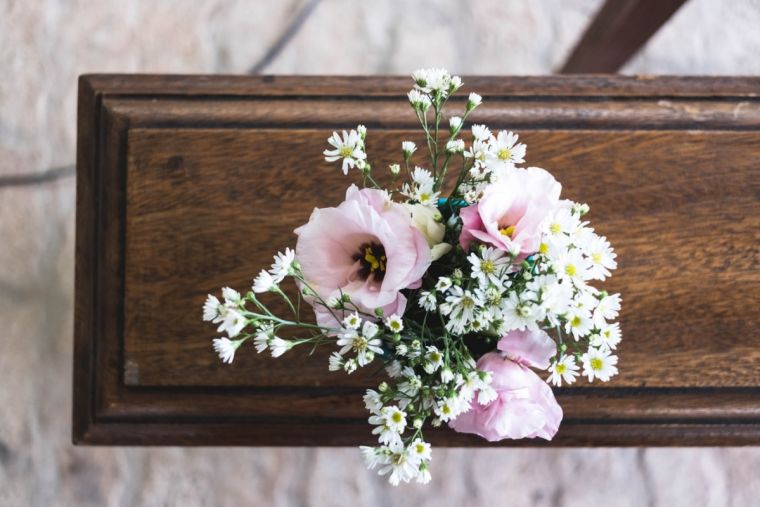The pandemic's unsung heroes who help us say goodbye

No one likes to talk about death, especially during a pandemic that's impacting everyone on the planet. And yet for some people, death is their life's work. It's their vocation.
In fact, helping bereaved families and friends say a personal goodbye to their loved ones is what motivates them, day after day.
They are the funeral directors and the staff of our local crematoria and cemeteries. Often forgotten or out of mind, the men and women who arrange and service funerals perform a vital role.
Vicars and other ministers of religion work closely with these key workers. We see the care they take to help families arrange the funerals they want for their loved ones. We see the strict health regulations they have had to follow during this pandemic and the increased pressures on them. We see the long hours and dedication.
Yet, after one funeral, an undertaker confided to me how useless he felt while NHS staff were at the frontline of fighting coronavirus. I replied that what he did was essential too, and massively important during these difficult days.
Another undertaker told me how he helped families cope with the restrictions on the numbers of mourners at funerals, currently set at 30. He had slowly driven his hearse past golf clubs, pubs and old people's homes from where friends – unable to attend the services – were able to say their goodbyes.
The 'first wave' of the pandemic in the UK brought a much-increased workload for undertakers. The Co-op funeral service reported a 22 per cent rise in the numbers of funerals conducted in the first six months of this year. Figures from the Office of National Statistics showed that April 2020 saw the highest level of monthly deaths on record in England and Wales, from any cause. Any 'second wave' of Covid-19 will bring renewed pressures for undertakers.
In the funerals I have taken during the pandemic, I have been much impressed by the care and sensitivity shown by funeral directors and crematorium staff, often while they have been under much stress themselves.
I applaud the way that crematoria have made it easier for mourners who cannot attend funerals to view the services via the internet. This seems to have become common practice across the country. During the pandemic, this 'optional extra' has become a key part of the service.
The feedback I have had from mourners watching from just outside the chapel, or across the world, has been very positive.
Christian ministers work closely with the bereaved family and undertaker to ensure each funeral is very personal to the deceased, and an occasion they will remember long after the day has passed.
We want to bring a message of hope at funerals. I like to say that love never dies, and that the love we have for someone goes on beyond the grave.
As the funeral section on the Church of England website states: "When someone dies, although we can't see the person we love anymore, Christians believe that through the cross and resurrection of Jesus Christ, we will see that person again. It might be in a very different form, in a very different way, but that is the Christian hope, and that is the message everyone will hear when they come to a Church of England funeral."
Meanwhile, it's the care of undertakers and all those who arrange and conduct funerals that help us say our goodbyes.
Peter Crumpler is a Church of England priest in St Albans, Herts, and a former Director of Communications for the CofE.











